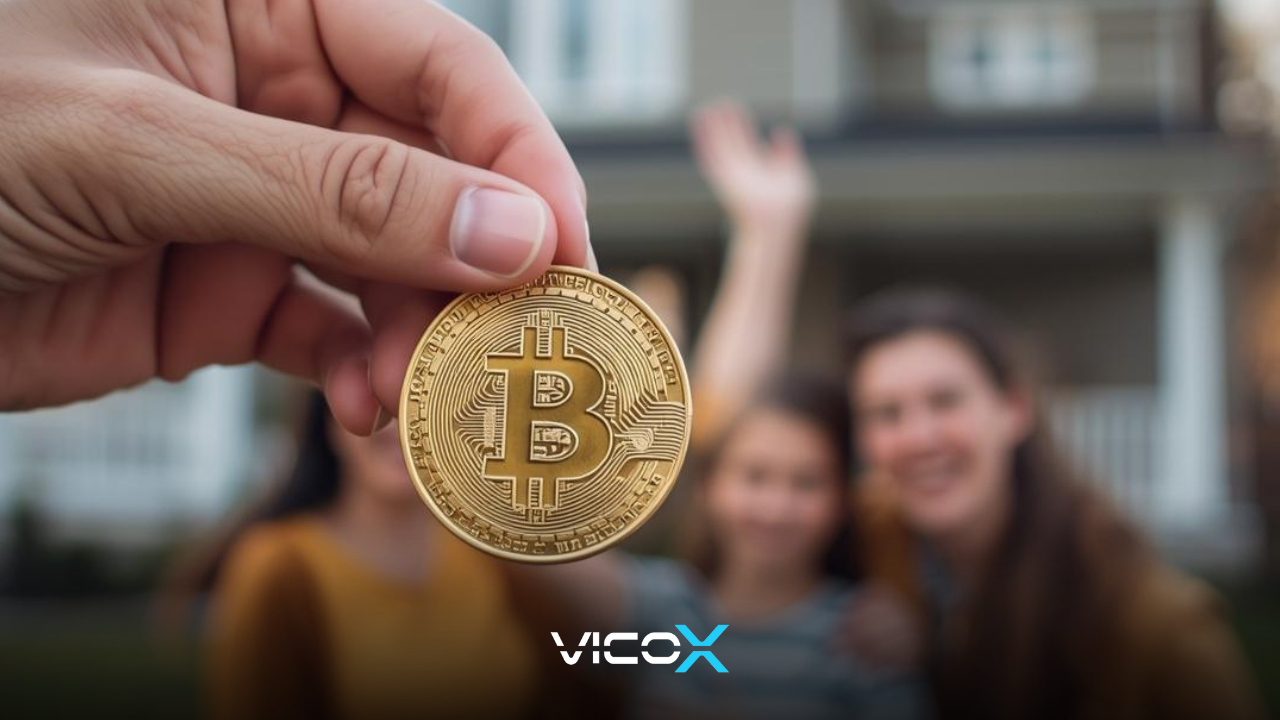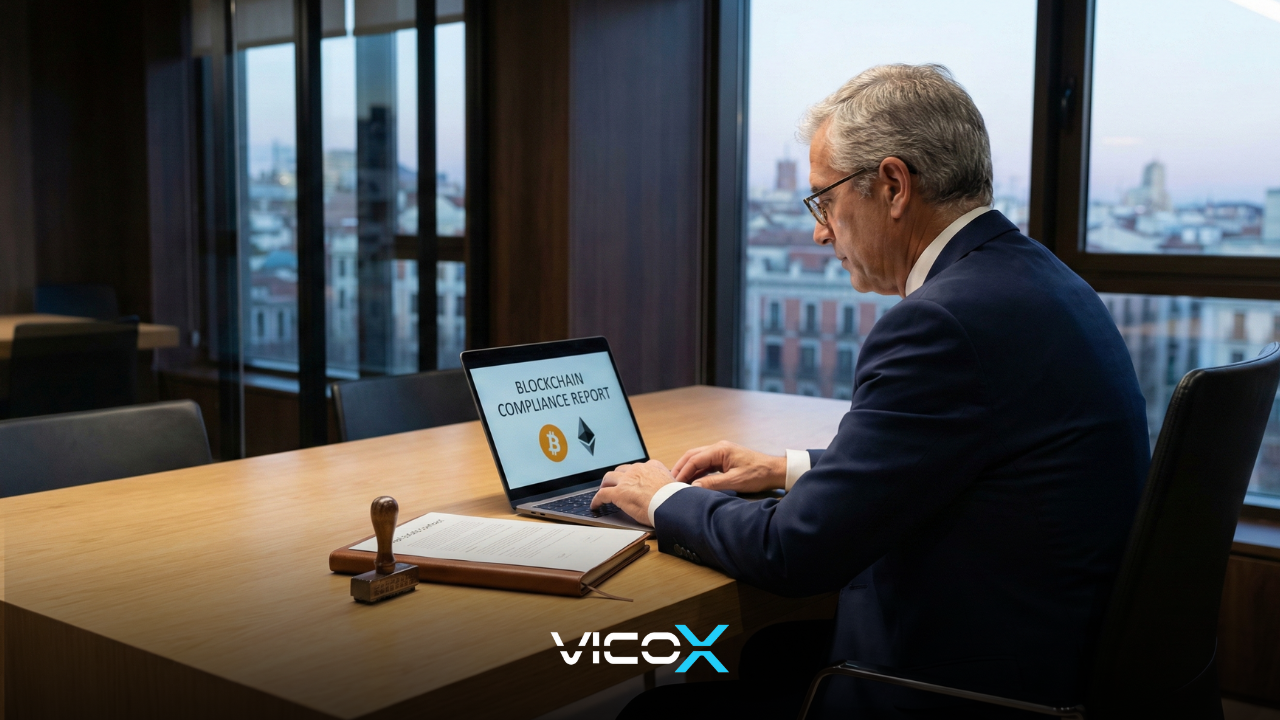
Introduction
At Vicox Legal, we have helped hundreds of international investors navigate the intersection between crypto, law, and real estate in Spain.
In 2025, Marbella has consolidated its reputation as one of the world’s most attractive hubs for luxury property investment, particularly for those who wish to purchase villas using Bitcoin (BTC) and other cryptocurrencies.
The convergence of blockchain technology, Spanish real estate law, and digital finance has made crypto property transactions not only possible but legally secure, provided that all procedures comply with the Código Civil Español, Ley Hipotecaria, and the Agencia Tributaria’s fiscal and AML/KYC framework, as published in the Boletín Oficial del Estado (BOE).
Buying a villa in Marbella with Bitcoin is not as simple as transferring tokens to a seller’s wallet. It involves legal verification, tax planning, escrow security, and notarial validation.
In this article, we walk you step by step through the entire process, from your initial consultation to receiving your property title deed.
By the end, you’ll understand:
- How to buy a property in Spain using Bitcoin legally
- How the conversion and escrow process works
- Which taxes and regulations apply
- How to protect your funds and ensure AML/KYC compliance
- Real examples of successful Bitcoin real estate purchases in Marbella
🏡 If you’re planning to buy property in Spain using crypto, read our full flagship guide: Buy Real Estate with Crypto in Spain.
Why Marbella Leads the Crypto Property Market
Marbella is not just a luxury hotspot, it’s a legal and financial bridge between Europe and the crypto economy.
- Global investor base: Buyers from the UAE, Switzerland, Germany, the USA, and Singapore dominate the crypto villa segment.
- Institutional acceptance: Several developers now accept Bitcoin and stablecoins for premium listings.
- Regulatory maturity: Spain’s AML laws (Law 10/2010) and property frameworks offer legal certainty unmatched by other EU countries.
- Crypto adoption: Escrow services, crypto banks, and blockchain notaries operate seamlessly under Spanish and EU regulations.
Example: In 2024, a Swiss investor acquired a €3.2 M beachfront villa in Nueva Andalucía using Bitcoin via a regulated OTC desk and escrow. The deal was notarized and fully compliant with Agencia Tributaria’s AML verification.
For more context on Spain’s crypto-friendly ecosystem, see Crypto-Friendly Real Estate Agents in Spain – 2025 Update.

Step-by-Step Guide: How to Buy a Villa in Marbella with Bitcoin
Below is the legal, financial, and procedural roadmap to purchase your dream villa safely and transparently.
Step 1 – Define Investment Strategy
The first step is understanding your investment objectives:
- Purpose: Lifestyle residence, rental income, or long-term capital appreciation.
- Budget: Define in both euros (€) and Bitcoin (BTC).
- Preferred area: Golden Mile, Sierra Blanca, Nueva Andalucía, La Zagaleta.
- Tax residence status: Resident vs non-resident impacts taxation.
Your legal team will also analyze your crypto portfolio volatility and advise on conversion timing to mitigate market risk.
Step 2 – Legal Pre-Check and Crypto Documentation
Before initiating any transaction, Spanish law requires proving the source of funds.
Under Law 10/2010 and Royal Decree 304/2014, all crypto proceeds must undergo AML/KYC verification.
This includes:
- Wallet transaction history (on-chain traceability)
- Exchange statements showing crypto purchase origin
- Identity verification for buyer and beneficial owner
- Declaration of crypto assets if exceeding regulatory thresholds
All documentation is reviewed by Vicox Legal’s compliance department to meet Agencia Tributaria and BOE-published AML rules.
Step 3 – Property Search and Preliminary Agreement
Once compliance is approved, you can proceed to select your villa.
Our partner network of crypto-friendly real estate agents identifies properties that accept Bitcoin or stablecoin payments.
After negotiation, both parties sign a Reserva or Option Contract, which outlines:
- Agreed purchase price (in euros and BTC equivalent)
- Payment structure and timeline
- Conditions precedent (e.g., property due diligence, legal clearances)
At this stage, no Bitcoin is transferred yet—only a refundable deposit, usually 1–5 % in fiat or stablecoin, held in escrow.
For details on agent selection, visit Crypto Real Estate Spain – Step by Step.
Step 4 – Legal Due Diligence
Due diligence ensures the villa is free of liens, encumbrances, or urban planning issues.
Key checks include:
- Registro de la Propiedad – Title deed and ownership verification
- Catastro – Confirmation of property boundaries and classification
- Urban compliance – Alignment with local Ayuntamiento regulations
- Tax debts – Verification of IBI and municipal obligations
All findings are compiled in a Legal Report signed by a licensed Spanish lawyer, as required by the Código Civil Español (Art. 1280).
Step 5 – Escrow Setup and BTC Conversion
Bitcoin transactions for real estate are executed through regulated escrow providers or legal custodians that hold the buyer’s crypto securely.
The process typically involves:
- Converting BTC to EUR at an agreed market rate through an OTC desk or licensed exchange.
- The escrow agent holds funds until all legal and notarial conditions are met.
- Once confirmed, the conversion is executed and payment is made to the seller.
This guarantees price stability and regulatory compliance while eliminating volatility risks during closing.
Step 6 – Notarial Signing and Registration
All Spanish real estate transactions must be signed before a notario público.
During the signing:
- The contract (escritura pública) specifies the euro value and crypto equivalent.
- The notary verifies AML documentation and the origin of funds.
- The deed is submitted to the Registro de la Propiedad for official ownership registration.
Some transactions integrate smart contracts to automate the crypto release once notarization is completed, enhancing transparency and reducing risk.
Step 7 – Tax Obligations and Reporting
Once ownership is registered, several taxes apply:
- ITP (Impuesto de Transmisiones Patrimoniales): 6–10% depending on region.
- IVA (Value Added Tax): 10% for new builds.
- Notary & registry fees: Typically 1–2%.
- Capital Gains Tax: If converting crypto to fiat, 19–26% (per Agencia Tributaria 2023 guidelines).
Vicox Legal assists clients with tax filing and declaration of crypto-related transactions in accordance with Spanish tax laws.
Real Case Studies
- Marbella Golden Mile – UAE Investor:
€4.1M villa purchased using BTC. Conversion through regulated OTC, notarized in Spain, AEAT reporting submitted. - Nueva Andalucía – German Investor:
€2.5M property acquired in USDT. Escrow release executed post-BOE registration check. - La Zagaleta – Singaporean Family Office:
Luxury villa bought with ETH. AML verification under Law 10/2010, tax planning coordinated with cross-border compliance teams.
Compliance Tips
- Always work with regulated escrow services.
- Verify ownership via Registro de la Propiedad before payment.
- Maintain full AML/KYC documentation.
- Report all conversions to the Agencia Tributaria.
- Use a law firm like Vicox Legal with crypto-law expertise.
FAQs – Crypto Real Estate in Spain
Which cryptocurrencies are most commonly accepted for property purchases in Spain?
Bitcoin (BTC) and Ethereum (ETH) are the most commonly accepted cryptocurrencies for real estate transactions in Spain. Some sellers may also accept stablecoins such as USDT and USDC, depending on the agreement between parties.
Are there any legal restrictions on using Bitcoin to buy a house in Spain?
No specific law prohibits the use of Bitcoin for property purchases in Spain. However, the transaction must comply with the Código Civil Español, Ley Hipotecaria, and Law 10/2010 on Anti-Money Laundering (AML). Documentation proving the origin of funds is mandatory under the Agencia Tributaria guidelines and must be verifiable in case of audit.
How is the price of a property determined when paying with cryptocurrency?
The price of a property in Spain is always established in euros (€). The equivalent amount in Bitcoin or another cryptocurrency is calculated based on the exchange rate agreed upon between buyer and seller at the time of signing the private purchase contract or notarial deed. Escrow services and legal advisors help manage volatility to ensure the euro value remains constant during closing.
Do I have to declare my Bitcoin payment to the Spanish tax authorities?
Yes. All crypto-to-fiat conversions or direct crypto payments related to property purchases must be reported to the Agencia Tributaria. According to the Spanish Tax Agency’s 2023 guidance, gains derived from crypto conversion are subject to Capital Gains Tax (19–26%) for residents and 19% for non-residents.
Final Thoughts
Buying a villa in Marbella with Bitcoin is now a legally recognized and efficient process when conducted with proper legal guidance.
Spain’s combination of legal clarity, AML compliance, and crypto acceptance makes it one of the most attractive destinations for blockchain investors seeking tangible assets.
Vicox Legal provides full end-to-end legal services, from crypto fund verification and tax optimization to escrow management, notarial coordination, and Registro de la Propiedad registration.
References
- Agencia Tributaria – Fiscalidad Criptomonedas
- Boletín Oficial del Estado (BOE)
- Registro de la Propiedad – Ministerio de Justicia
- Crypto-Friendly Real Estate Agents in Spain – 2025 Update
- Crypto Real Estate Spain – Step by Step
- Buy Real Estate with Crypto in Spain
Related Articles – Deepening Your Legal Knowledge
For a complete and secure journey into Spanish crypto real estate, explore our full library of expert guides:
- The Ultimate Legal Guide: Buy Property in Spain with Crypto: The Comprehensive 2025 Guide
- A foundational resource covering regulations, security, and market overview.
- Procedural Roadmap: Crypto Real Estate Spain – Step-by-Step Process for Foreign Investors
- Detailed actions from initial due diligence to final registration.
- Legal Compliance and Escrow: The Legal Process to Buy Real Estate in Spain Using Crypto (AML/KYC)
- Focus on AML compliance, notarial requirements, and fund verification.




